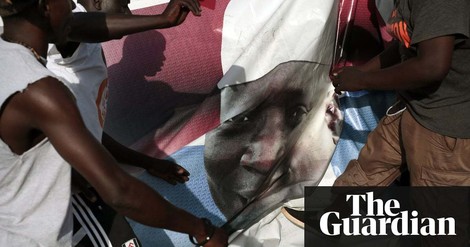Your podcast discovery platform
Curious minds select the most fascinating podcasts from around the world. Discover hand-piqd audio recommendations on your favorite topics.

piqer for: Globalization and politics Global finds
I am an Australian freelance journalist focussing on conflicts, politics, and warzones around the world. I have been working as a journalist for over 5 years, having reported from Australia, Germany, China, Egypt, Palestine, and Ukraine. I am especially interested in the way that new technologies are being used in conflict zones in unexpected and often disturbing ways. During my time working as a journalist, I also co-founded open-source war reporting site Conflict News.
How To Topple A Dictator: The Rebel Plot That Freed Gambia
Under the dismissive eye of the world media, one of the globe's biggest ‘good-news stories’ has been horribly underreported. Africa, long maligned as a continent of poverty, war, corruption, and despots, has been slowly and steadily improving. The progress is far from uniform, and many new tragedies take place each year, but nonetheless the quality of governance, and people’s general standards of living are improving.
Last year’s events in The Gambia were one small part of this pattern. A corrupt and murderous dictator was overthrown, not through a military coup or a violent revolution, but rather through democratic action and the multilateral help of ECOWAS. Much was made at the time by the world media of the decisive role played by neighboring countries, however, the sacrifices made by the country’s activists remained largely unexplored – until now.
Writing for the Guardian, Philip Róin and Mikkel Danielsen have taken an in-depth look at what made the Gambian revolution successful. Taking a bottom-up approach, they interview key figures within the country who helped resist the rule of Yahya Jammeh, and chronicle the events and small acts of resistance which cumulatively helped bring down a dictator with minimal bloodshed.
“A revolution is not the result of a people having hard-hitting ideas and fiery passion,” he told us. “A successful revolution comes down to planning.”
Despite decades of oppression, in the end, it took just one decisive act to set into motion a process which eventually led to a change of government.
